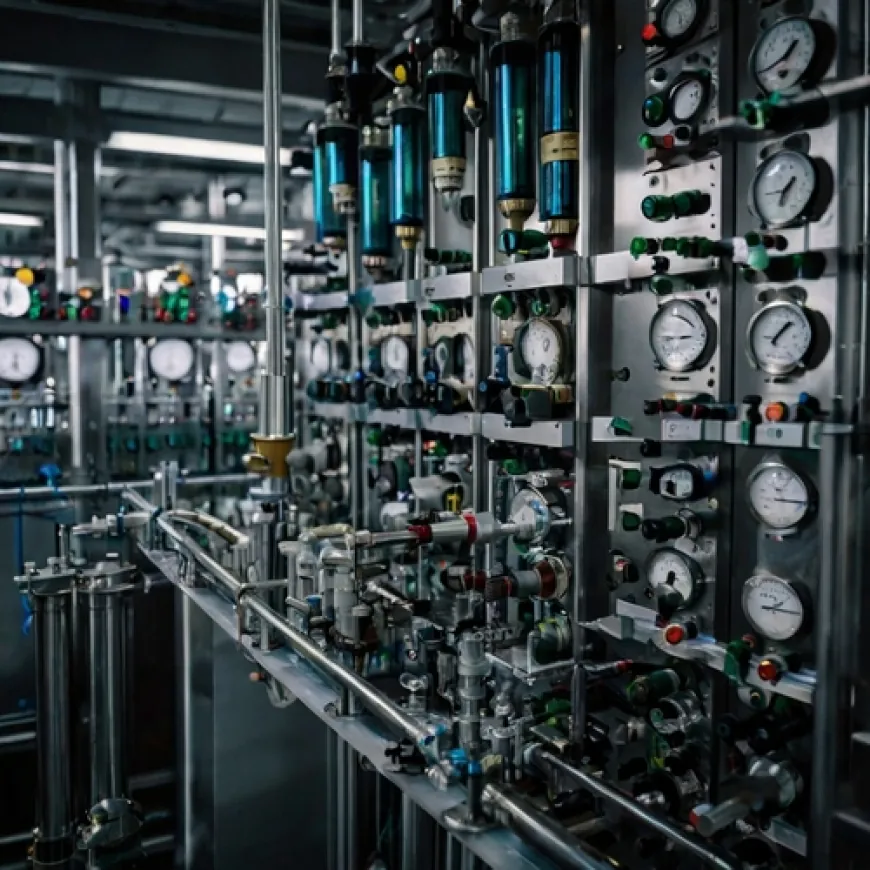The Future of the Process Automation & Instrumentation Market in 2031
The Process Automation & Instrumentation Market is experiencing significant growth, driven by technological advancements and the increasing demand for efficiency across various industries

The Process Automation & Instrumentation Market is experiencing significant growth, driven by technological advancements and the increasing demand for efficiency across various industries. By 2031, this sector is expected to play a pivotal role in streamlining industrial processes, reducing human errors, and enhancing operational performance. As industries continue to embrace automation technologies, the market for process automation and instrumentation is poised to expand, providing opportunities for innovation and improvement across multiple sectors, including manufacturing, chemicals, oil and gas, and pharmaceuticals.
One of the key drivers of growth in the Process Automation & Instrumentation Market is the increasing need for operational efficiency. With the rising complexity of industrial processes, companies are turning to automated solutions that can optimize production while minimizing costs. This trend is particularly evident in sectors like manufacturing, where the integration of automated systems can boost productivity and quality control. Instruments such as sensors, controllers, and analyzers are becoming more advanced, providing real-time data and insights that are crucial for decision-making.
The adoption of the Industrial Internet of Things (IIoT) is also playing a significant role in the market's evolution. IIoT-enabled devices allow for remote monitoring and predictive maintenance, helping businesses reduce downtime and improve system reliability. By connecting various systems and devices, businesses can gather actionable data that leads to better performance and decision-making. As IIoT continues to advance, it is expected to contribute significantly to the growth of the Process Automation & Instrumentation Market in the coming years.
The market is also being shaped by advancements in artificial intelligence (AI) and machine learning. These technologies are increasingly being integrated into automation systems to enhance process optimization. AI algorithms can analyze vast amounts of data from different sources to detect patterns and anomalies, enabling proactive decision-making and reducing the likelihood of system failures. The combination of AI and automation is expected to revolutionize industries, making processes smarter and more efficient.
Another key factor contributing to the growth of the Process Automation & Instrumentation Market is the rising demand for safety and compliance. In industries like pharmaceuticals and chemicals, regulatory requirements are stringent, and automation can help ensure that processes meet these standards. Automated systems can monitor environmental conditions, manage hazardous materials, and ensure that safety protocols are followed, reducing the risk of accidents and improving worker safety.
As the world moves toward a more sustainable future, the role of process automation in energy management and sustainability will become increasingly important. Automation systems can optimize energy consumption, reduce waste, and improve the overall sustainability of operations. Industries are under pressure to reduce their environmental footprint, and process automation offers a viable solution to meet these challenges while maintaining profitability.
In conclusion, the Process Automation & Instrumentation Market in 2031 is set for substantial growth, driven by technological innovations, increasing demand for efficiency, and the need for enhanced safety and sustainability. The integration of AI, IIoT, and advanced instrumentation will continue to transform industries, making automation an essential part of future industrial operations.












